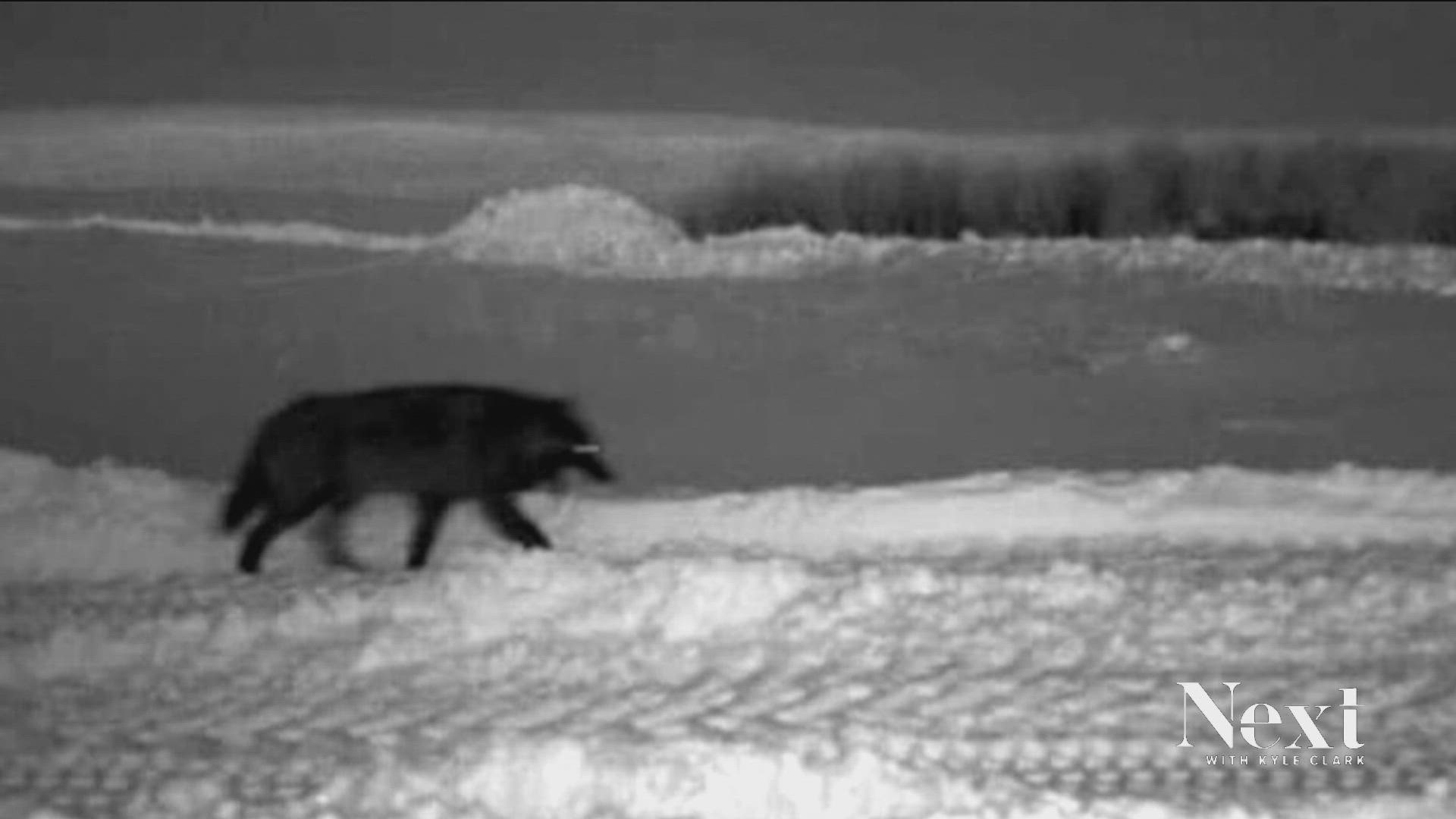DENVER — Colorado’s newest transplants will soon be arriving from places like Wyoming, Idaho and Montana. They won’t start getting here until at least 2024, but the planning to reintroduce wolves back into our state has already started.
Wolves will be captured from places like Idaho, Montana and Wyoming before they’re brought to Colorado and reintroduced to the state. Colorado Parks and Wildlife (CPW) is required to release them west of the Continental Divide.
"They’re very agile, very mobile animals. We will introduce a fair distance south of Wyoming, East of Utah and North of New Mexico," said Eric Odell, a species and conservation program manager with CPW. "We want to take wolves from where they are plentiful and where they’re doing well."
The plan is to bring in between 10 to 15 animals per year over a three-year span. So, around 30 to 50 animals that would be monitored once in the state.
Colorado voters opted to develop a self-sustaining population of wolves in the state. That’s what the approved statute says.
There is already a pack of wolves that migrated down from Wyoming by itself and is living in North Park near Walden. That pack is not enough to sustain the wolf population around the state. CPW is required to keep moving forward until the will of the voters is fulfilled and wolves are fully re-introduced.
"Ultimately that’s what we want to do, establish a population that takes care of itself and does not need ongoing reintroduction of additional animals," said Odell. "If we feel like we have a good population started with that seed population that we use in that first couple of years, then I think that we’ll be in good shape to sit back and monitor and see if that population continues to grow."
Wolves that came here organically are responsible for several cows that were killed on a ranch near Walden. No wolves have been reintroduced by humans yet.
Back in November 2020, voters passed a statute to begin the process of bringing wolves back to Colorado. Parks and Wildlife has been working since then to create a plan to do so. That has to be complete by December 31, 2023, before the Parks and Wildlife Commission approves it.
"We want animals that are going to do well. We don’t want to take animals that have a history of depredation," said Odell.
It’s an expensive process, trapping wolves using a helicopter and transporting them to Colorado. CPW is already budgeting for the depredation costs the state will have to pay out to ranchers for livestock killed by wolves.
This is not the first time that wolves have been reintroduced to parts of the American west. Back in the '90s wolves were brought back to parts of Yellowstone National Park. A lot of the same people who worked on that project decades ago are helping Colorado navigate the process now, as well.
SUGGESTED VIDEOS: Full Episodes of Next with Kyle Clark

